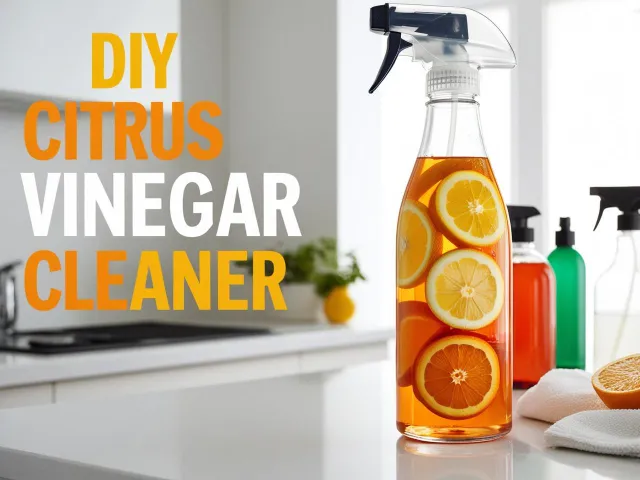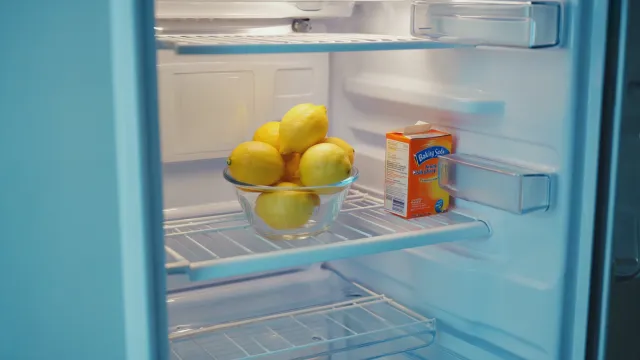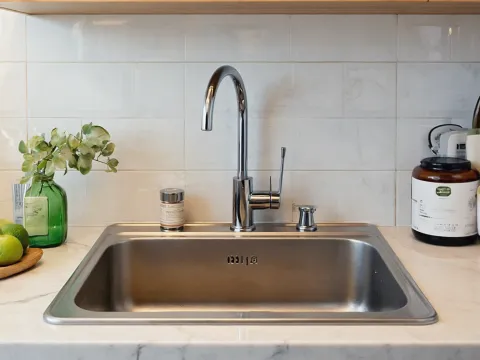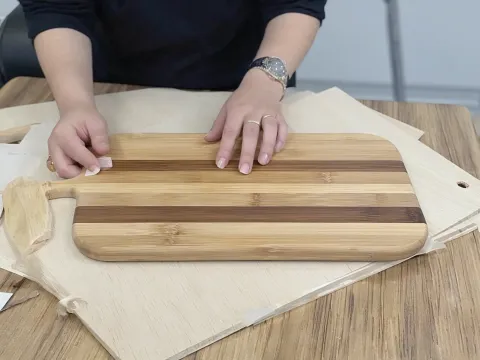Published on May 24, 2025
Last updated: May 24, 2025 · ⏱ 3 min read
Make a Citrus Vinegar Cleaner Using Leftover Peels

Introduction to DIY Citrus Vinegar Cleaner
In today's world, many people are searching for effective and environmentally friendly cleaning solutions. With a growing awareness of the harmful chemicals found in commercial cleaning products, more households are turning to natural alternatives. One such option is the DIY Citrus Vinegar Cleaner, a simple yet powerful solution that can help keep your home clean and fresh. This cleaner not only cuts through grime and grease but also leaves behind a delightful citrus scent. In this comprehensive guide, we will delve into the benefits of using a citrus vinegar cleaner, how to make it, and the best ways to utilize it throughout your home.
The Benefits of Using Citrus Vinegar Cleaner
Citrus vinegar cleaner offers numerous advantages that make it a popular choice among natural cleaning enthusiasts. First and foremost, it is non-toxic and safe for both your family and pets. Unlike many commercial cleaners that contain harsh chemicals, citrus vinegar cleaner is made from natural ingredients, ensuring that you can clean your home without worrying about harmful residues.
In addition to being safe, citrus vinegar cleaner is also incredibly versatile. It can be used on a wide range of surfaces, from countertops and mirrors to floors and bathrooms. The acidic nature of vinegar makes it effective at breaking down mineral deposits, cutting through grease, and eliminating odors.
Another significant benefit is cost-effectiveness. Making your own cleaner at home can save you money compared to buying multiple commercial cleaning products. With just a few simple ingredients, you can create a powerful cleaner that rivals store-bought options.
Lastly, the refreshing scent of citrus not only makes your home smell great but can also uplift your mood while cleaning. The natural fragrance of lemons, oranges, or grapefruits can create a pleasant atmosphere, transforming a mundane chore into a more enjoyable experience.
How to Make Your Own Citrus Vinegar Cleaner
Creating your DIY Citrus Vinegar Cleaner is a straightforward process that requires minimal effort. Here's a simple recipe to get you started:
Ingredients:
- 1 cup of white vinegar
- 1 cup of water
- Peels from 2-3 citrus fruits (lemons, oranges, or grapefruits)
- A clean glass jar with a lid
Instructions:
1. Start by collecting the peels from your chosen citrus fruits. You can use peels from lemons, oranges, or grapefruits, depending on your preference.
2. Place the citrus peels into the glass jar and pour in the white vinegar, ensuring that the peels are fully submerged.
3. Seal the jar tightly and let the mixture sit for at least two weeks. This allows the vinegar to extract the essential oils and natural fragrance from the citrus peels.
4. After two weeks, strain the mixture to remove the peels. You can use a fine mesh strainer or cheesecloth for this step.
5. In a spray bottle, combine the strained citrus vinegar with an equal amount of water. This dilution makes it safe for use on various surfaces while maintaining its cleaning power.
6. Your DIY Citrus Vinegar Cleaner is now ready to use! Be sure to label the spray bottle for easy identification.
Best Ways to Use Citrus Vinegar Cleaner
Once you have your citrus vinegar cleaner prepared, you may wonder about the best ways to utilize it in your home. Here are a few effective applications:
1. Cleaning Countertops
Your kitchen countertops are a high-traffic area that requires regular cleaning. To maintain cleanliness and hygiene, simply spray the citrus vinegar cleaner on your countertops and wipe it down with a clean cloth or sponge. The natural acidity of vinegar will help dissolve food residues and disinfect the surface, leaving it sparkling clean.
2. Polishing Mirrors and Glass Surfaces
To achieve streak-free mirrors and glass surfaces, the citrus vinegar cleaner works wonders. Spray the solution onto the glass and wipe it with a microfiber cloth. The citrus scent will leave your mirrors smelling fresh while the vinegar eliminates smudges and fingerprints.
3. Freshening Up the Bathroom
Bathrooms can harbor unpleasant odors and grime. Use the citrus vinegar cleaner to tackle soap scum and hard water stains. Spray it on sinks, tubs, and shower doors, let it sit for a few minutes, and then scrub away for a clean and fresh bathroom.
4. Disinfecting Cutting Boards
Cutting boards can trap bacteria and odors, especially if they are made of wood. To disinfect your cutting board, spray the citrus vinegar cleaner and wipe it down thoroughly. Rinse with water and let it dry. This method not only cleans but also helps eliminate stubborn odors.
5. Deodorizing Fabrics and Carpets
For fabrics and carpets that need a refresh, the citrus vinegar cleaner can act as a natural deodorizer. Lightly spray the solution on the fabric surface and allow it to air dry. The vinegar will neutralize odors without leaving a strong scent behind.
Tips for Using Citrus Vinegar Cleaner Safely
While citrus vinegar cleaner is generally safe for most surfaces, there are a few tips to keep in mind for optimal use:
- Avoid on Natural Stone: Do not use citrus vinegar cleaner on granite, marble, or other natural stone surfaces, as the acidity can damage the finish over time.
- Test Before Use: Always test the cleaner on a small, inconspicuous area first to ensure it doesn't cause discoloration or damage.
- Use Proper Dilution: Dilute the citrus vinegar mixture with water (typically 1:1) to reduce its strength for everyday cleaning tasks.
- Rinse Food Surfaces: If using on kitchen counters or cutting boards, rinse the surface with water afterward to ensure no residue is left behind.
- Store Safely: Keep the cleaner in a clearly labeled spray bottle and store it out of reach of children and pets.
By following these simple precautions, you can enjoy the natural power of citrus vinegar while keeping your home safe and surfaces in top condition.
FAQs

Written by Soufyan from GrowToGrub
Soufyan is a gardening educator and founder of GrowToGrub. Through simple guides, easy recipes, and practical life hacks, he helps everyday growers turn small spaces into sustainable, delicious, and chemical-free living.


